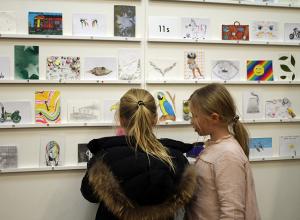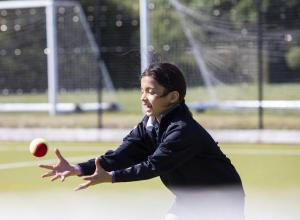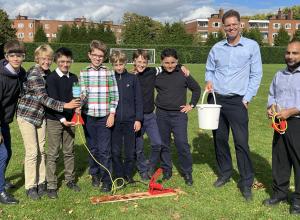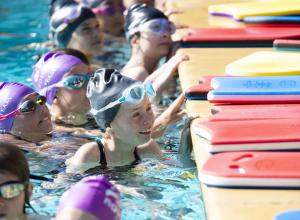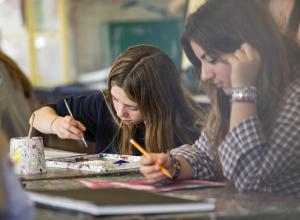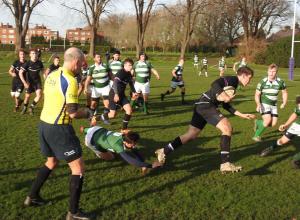
It often comes as a sudden shock to parents but teenage rebellion is a healthy part of growing up. Andy Woodward examines the causes and provides some management advice
How did it happen? Just a moment ago it was all cuddles, Lego and a family movie on Friday. Now it’s a locked bedroom door, evasive answers, ill-advised mascara and a strange urge to hang around in parks. Where did it all go wrong? What happened to the sweet child you raised?
In fact, your teenager is treading a near inevitable path when, despite your years of best efforts, they pull away from you and rebel. It is not because of bad parenting, indwelling evil or the impact of video games. Instead, it is a natural process – one that, if we can stretch our memories back far enough, was as true of us as it now is of our kids. So let’s take a look at why, and how we might helpfully react…
Rebellion is not because of bad parenting, indwelling evil or the impact of video games. It's a natural process that was as true of us as it now is of our kids
Andy Woodward
Teenagers really do see the world differently from how they did before puberty got involved. They’re not just being awkward. While a long way from being fully developed, their prefrontal cortex – the bit that controls behaviour and decision making - has kicked in and taken on a life of its own. Where parental wisdom was previously accepted by their children as being gospel truth, all sorts of their own ideas, judgements and hypotheses are now being generated. This manifests in questioning, arguing and sudden opinions – most of them to be tested out on mum and dad, and the whole thing generally healthy – albeit annoying for the bemused parental recipient. Indeed, this is where many of us may eventually find ourselves having to settle any matter in question with the time-honoured justification: “because I said so”.
These neurological changes may also help explain that other sad staple of teenage life – embarrassment at a parents’ very existence. Much as I’m trying to show solidarity with you, dear reader, my own kids are still only 8 and 6 at present, and I’m pretty sure I’m still a hero in their eyes. Alas, it doesn’t last. Developing one’s own ideas and judgements in adolescence usually involves a new view of what parents should be like… and the odds are we don’t meet this ideal, whether forged by media depictions, or by uncritical observation of a friend’s much cooler mum (who, incidentally, is causing that friend to squirm with excruciation every time they open their mouth). I remember well the quandary: yes, I wanted my mum to buy me new clothes from the High Street. But I just couldn’t risk us being seen together while it happened…
Where parental wisdom was previously accepted by their children as being gospel truth, all sorts of their own ideas, judgements and hypotheses are now being generated.
Andy Woodward
Such harsh judgements chime with another teenage absolute – the need to fit in and get it right in front of peers. I admit I don’t have a particular part of the brain to blame for this part – but universal observation makes the fact undeniable. Once pleasing parents stops being the main aim in a child’s life, there seems instead to be a new need to find and fit with a tribe of their peers. Teenagers are extremely susceptible to the influence of those around them, and few of those behaviours we worry about – whether drug-taking, sexting or climbing scaffolding – are carried out without prompting from others or without an explanatory desire for peer approval.
In this regard, the culture isn’t helping. Peer pressure would seem to be kicking in earlier – this century has seen the average age of ‘firsts’ (such as first alcoholic drink, first sexual experience) shift younger – with societal awareness of such things being ‘normal’ accelerated through access to phone-based 24-hour media, eg Netflix or Snapchat, typically from around 11-12 years old. This matters because, as we observe with our Sixth Form, by 16-18, individuals seem more comfortable with who they are and a little more willing to stand out in the crowd. If it was people of this age facing the pressure of ‘firsts’, we might have some confidence that they make a moderately reasoned judgement. However, to put this burden on 13-year-olds… well the calm and rational reasoning may just not yet be there to call upon.
All animals go on this journey to become independent from their families... It is a necessary part of the period of adolescence to become independent from your parents.
Dr Sarah-Jayne Blakemore, Neuroscientist
After all, the early teenage brain still has a long way to go. Neuroscientist Sarah-Jayne Blakemore (check out her Ted talk!) says that “Your child, aged 14 or 15, might look like an adult and might be taller than you but that doesn’t mean they have a completely adult-like brain”. Indeed, “The brain undergoes really slow and protracted development right through the teenage years…” It seems that development of the emotional part of the brain runs ahead – meaning such emotions are amplified in these years – but, as noted above, the reasoning part (hello again prefrontal cortex) is not yet in a state to make full sense of it. Worse, the brain is playing another harsh trick, in that levels of dopamine and serotonin are altered in adolescence – with more of the former (linked to feelings of invincibility and recklessness) and less of the latter (equating to a lack of a ‘handbrake’, given serotonin’s calming qualities). This contributes to the increased likelihood of risk taking and a tendency towards erratic moods.
Nonetheless, such hormonal shifts are not an accident of nature. They would seem instead to be a key element in the evolutionary need for teenagers, on the cusp of adulthood, to develop a sense of independence and tear themselves away from the parental cocoon, taking steps onto their own path that may otherwise have seemed too daunting. As Dr Blakemore says, “All animals go on this journey to become independent from their families... It is a necessary part of the period of adolescence to become independent from your parents. And in order to do that, you need to forge your own identity, establish yourself with your peer group, test things out and explore.” The desire for freedom from parents – a desire that can look and feel to us like rejection – is natural and important, at least if we want them to be doing something other than still living with us and sponging off us once a ‘real’ adult…
Although tempting, we should try not to take it personally and should certainly not fall into the trap of casting ourselves as the enemy.
Andy Woodward
So how do we respond? Here are a few thoughts…
Firstly, you don’t have to panic. Again, rebellion and a certain pulling away are natural. Although tempting, we should try not to take it personally (and it will be difficult – I love being my kids’ hero!), and should certainly not fall into the trap of casting ourselves as the enemy. Adolescence is an exciting but overwhelming time for young people (perhaps even frightening at times) - they really need to know that their parents are there, still loving them and still available for chat, help and advice, however rarely those things may seem to be sought.
Secondly, it’s really important not to mock them. The transition towards adulthood and the forging of self-identity is important and formative. Teenage expressions conveyed via fashion, music or relationships may seem to us ill-judged or regrettable, but it is damaging for our kids to feel their newly discovered self is ridiculous, or considered ridiculous by important people in their lives. Little is more likely to dig a divide between us and them, a particular shame given that efforts taken to instead engage with their new discoveries might be key in keeping the channels of parent-teen communication open (always an outcome worth striving for). And their favourite album isn’t really just ‘noise’.
It may be worth maintaining relatively tight boundaries, in terms of your stated expectations, wishes and household rules.
Andy Woodward
Thirdly, while every parent will take their own approach, and will encounter their own victories and defeats along the way, it may be worth maintaining relatively tight boundaries, in terms of your stated expectations, wishes and household rules. If teenagers are indeed hard-wired to rebel and push boundaries, then we don’t want to make that overly difficult for them to achieve. If your child believes that drinking alcohol with friends is a genuine act of rebellion, then that might be all they need to do in order to tick that box. If, however, their easy-going liberal parents are totally fine with them drinking, smoking or getting high… then the act of rebellion is really going to have to be spectacular! The ordinary methods just won’t cut it… and we don’t want this. Let’s not forget that risk-taking behaviour can in some become genuinely self-endangering behaviour. And, in fact, that the oh-so-unreasonable parent is a universally understood and often helpful get-out clause for teens when peer pressure would otherwise be making it difficult for them to say no or meet their curfew.
There is no need to assume that every teenage act of rebellion befits a menacing Channel 4 news report.
Andy Woodward
Neither do we have to assume the battle is lost in advance. No survey has ever found that the majority of our teenagers are abusing drugs or doing themselves damage… far from it. A recent UCL study suggested that only 1 in 10 17-year-olds had used ‘hard’ drugs (eg cocaine, ketamine), with a third having tried cannabis and over half having engaged in binge-drinking. To state the mathematically obvious, an alternative take on that would be that nine-tenths haven’t used hard drugs, with two thirds not having taken drugs at all and plenty not having drunk to excess. There is no need to assume that every teenage act of rebellion befits a menacing Channel 4 news report. Nor, for that matter, that the most reckless thing ever done by a teenager on a Saturday night is the level at which they’re then likely to live their life thereafter…
It’s tough being a teenager. And it’s tough being a parent of a teenager. But both can be a lot of fun too. They may look like they’re trying to flee the nest, and eventually they will… but in the meantime they still need it, and need you, for a good few years yet. After all, won’t you kind of miss them once they’re sensible?

Andy Woodward is Deputy Head of Senior School
He is delighted to receive feedback to his blog so please feel free to respond with your views to him at website@harrodian.com

